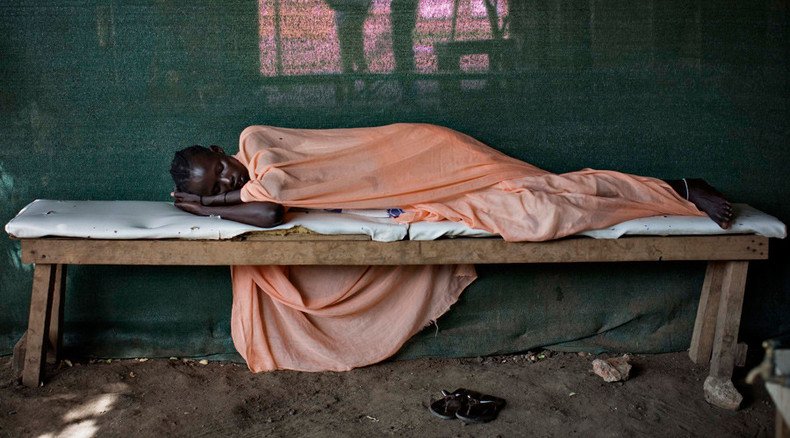8-hour sleep myth debunked? New study shows hunter-gatherer tribes get less shut-eye

Hunter-gatherers in African and South American tribes appear to only clock up an average of 6.4 hours of sleep per night, a new study reveals. Scientists say the industrial world people can finally relax about sleeping less than eight hours a night.
A group of researchers have recorded sleeping habits of three hunter-gatherer societies in three different environments in Africa and South America: the Hazda tribe in Tanzania, the San in Namibia and the Tsimane in Bolivia. Their findings have been published in Current Biology magazine this Thursday reveals.
Even without distractions like the omnipresent smartphone or hypnotizing evening TV, people from these three groups all sleep less than the average nine hours recommended by the American National Sleep Foundation.
E-book insomnia: Kindle, Nook, iPad disrupt sleep patterns http://t.co/zxybATkk6ppic.twitter.com/ropfospOcQ
— RT (@RT_com) December 23, 2014They fall asleep no less than three hours after sundown and most wake up after the sun has already risen, contradictory to the common belief that in preindustrial societies people woke up before the sunrise.
In the evenings the studied people would get together, eat, chat and sing. The Tsimane would even go on occasional nocturnal hunts. But generally it is considered as a time for socializing.
“Maybe people should be a little bit more relaxed about sleeping. If you sleep seven hours a night, that’s close to what our ancestors were sleeping,” says sleep researcher and study leader Jerome Siegel of the University of California, Los Angeles.
Twitter causes insomnia, it has become the most common sleep distraction in the world.
— Fact (@Fact) October 12, 2015The study also shows that napping isn’t an every-day luxury with these three groups: on average they dozed off on less than 7 percent of winter days and on 22 percent of summer days.
“We find that humans living in a natural environment do not sleep more than modern-day humans,” Siegel adds.
One thing that stands out though is that hunter-gatherers sleep an hour longer in winter due to colder temperatures and darker days. Scientists suggest that recreating these conditions would help people with sleeping problems.
The thing about insomnia is that you can be up too late and up too early at the same time.
— Untastic Mr. Fitz (@UnFitz) October 13, 2015Insomnia is not a thing among the Hazda, San and Tsimane - up to a point that there is no word to describe it in the San and Tsimane languages. Researchers say that even explaining it was an issue - the people couldn’t quite grasp the idea.
Scientists used Actiwatches, wearable technology for the wrist, to monitor sleeping patterns based on the movement of the arm.
READ MORE Insomniacs should be given placebos mixed with real pills – new study
Sleep researcher Christoph Nissen of the University of Freiburg says that the new study represents some of the first solid information on how Stone Age people might have slept.
Now that the old wives’ tale about the eight-hour sleep has been challenged, researchers agree that it doesn’t necessarily mean everyone should start sleeping less, however those who never managed to score the eight-nine hour long snooze can breathe a sigh of relief.












